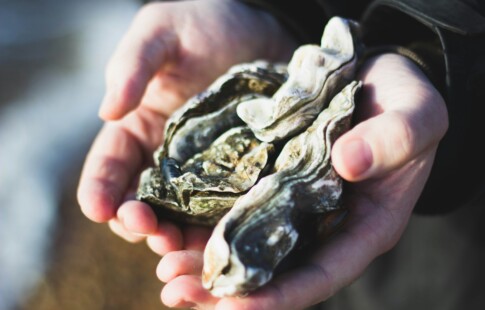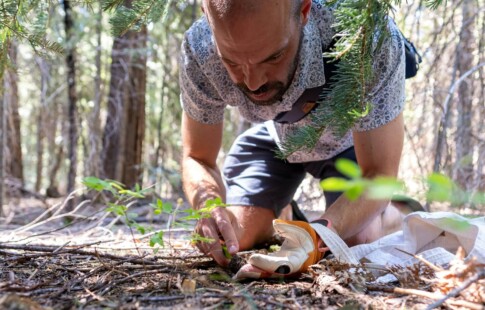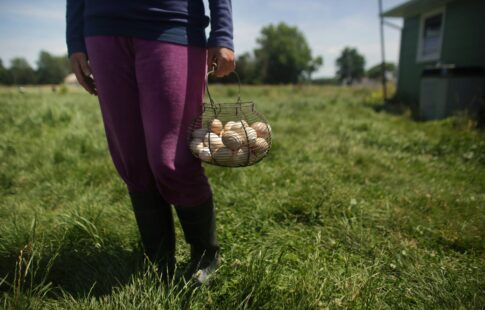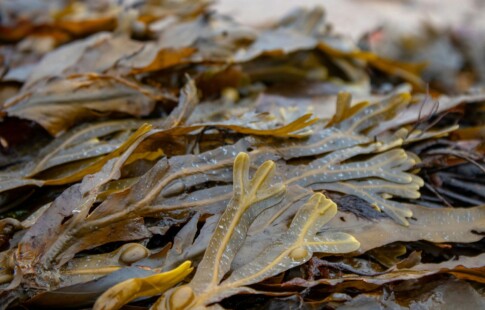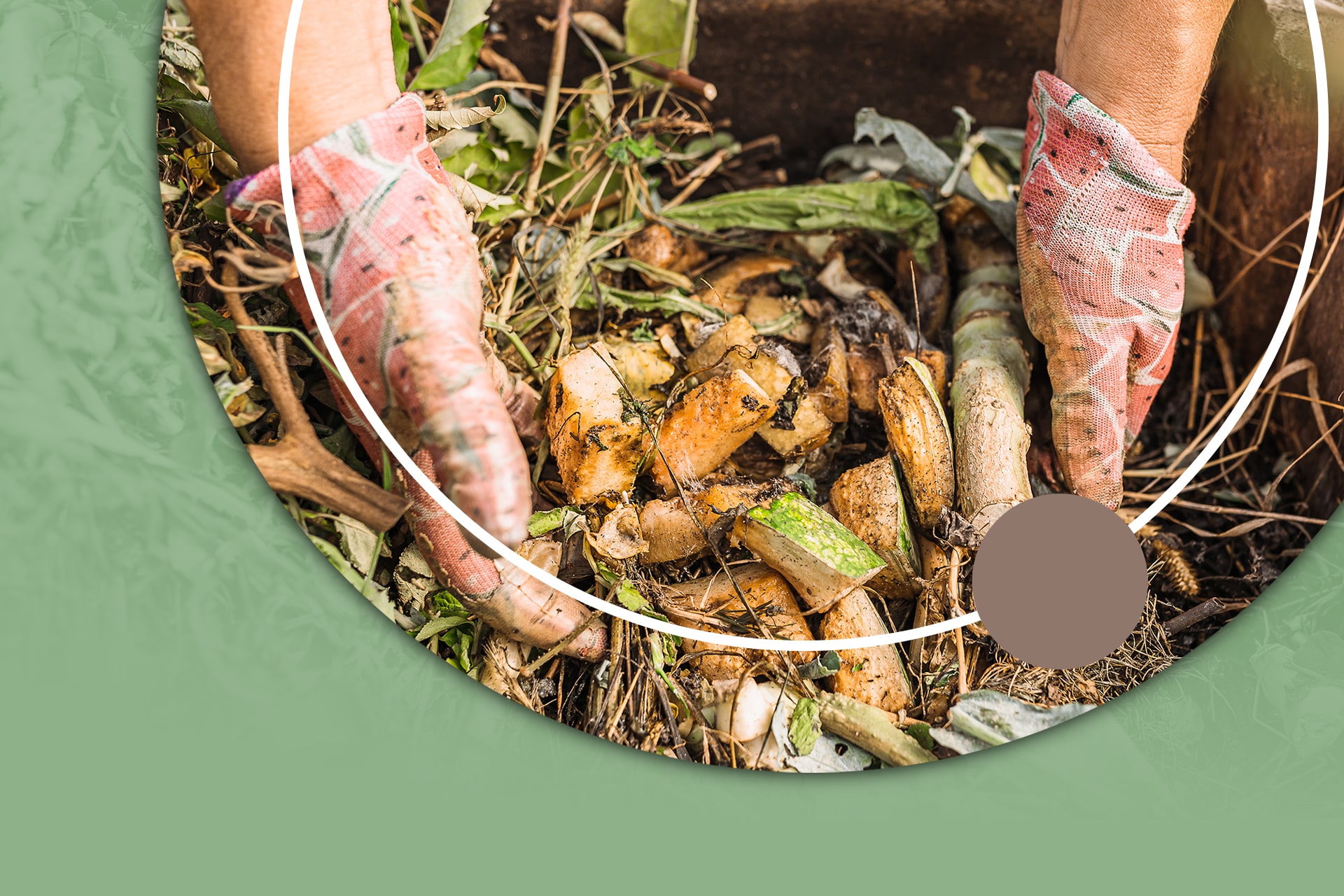
The Benefits of Composting and How To Get Started
We are reader-supported. When you buy through links on our site, we may earn affiliate commission.
Composting is the natural process of recycling organic matter like plants and food scraps. This process occurs every day in nature as mushrooms feast on decaying logs and worms help to decompose dead animals, fruits, and leaves. However, humans can also get their hands dirty and join in the composting fun. In doing so, they can help minimize waste, enrich the Earth’s soil and conserve essential resources. Here are some of the benefits of composting.
Reduces Waste
Each year, Americans throw away nearly 220 pounds of food per person, most of which ends up in landfills. According to the FDA, this waste equates to 30% to 40% of the United States’ food supply. Of course, this amount of waste has far-reaching impacts on the environment and society.
Food that could have helped hungry families ends up in the garbage and animal ecosystems. Processing, transporting, storing and disposing of waste squanders valuable resources like water and energy. Meanwhile, the U.S. continues to dedicate more land to farming, thereby destroying natural habitats and exploiting even more nonrenewable resources.
Luckily, composting can cut down on this immense amount of waste and minimize humans’ effects on the environment. In fact, if everyone in the U.S. composted all of their food waste, carbon emissions would drop as if there were 7.8 million fewer cars on the road. There would also be more room in landfills for unrecyclable items and those that take many years to decompose. This is one of the main benefits of composting.
Enriches Soil
Composting can also improve natural habitats by enriching the soil and making it a healthier environment for plants and animals. Organic materials and food matter will often attract decomposers like worms and fungi that will break down compost and turn it into nutrient-rich soil.
Adding this material to your garden can balance the soil’s pH and make nutrients more readily available for plants. In turn, this rapid absorption of nutrients can help control soil erosion, support healthy plant growth and extend the growing season by moderating soil temperature.
You can also make worm compost tea to spray on plants as an effective alternative to chemical fertilizer. Steep worm manure from your compost bin in water overnight. Use a fish tank bubbler to add extra oxygen to the tea and boost microbial activity. Then, water your indoor and outdoor plants with the tea to fertilize the soil and stave off disease.
Conserves Water and Land
Another one of the benefits of composting is turning waste into reusable organic matter is nature’s recycling system. When you use composting to recycle your waste, you do your part to conserve the Earth’s resources, one of them being water. Soil with 1% organic matter content can hold 1.5 quarts of water per cubic foot. Therefore, the more compost you add to your garden, the more drought-resistant it will be. Since it slowly releases water to plants, you won’t have to water as frequently, either.
Composting can also make people more aware of how much food they waste. Eventually, they may begin to shorten their shopping list and minimize waste before it even reaches the table. While this method may leave them less food to send to compost, it will conserve more water and land by decreasing global food demand.
Agriculture and food production consume 70% of the world’s water supply and half of all habitable lands, leaving only 37% for forests and 11% for grasslands. Livestock requires much more land and water and is more difficult to compost. Thus, changing your diet to consume less meat can effectively conserve resources, too. However, even plant lovers can support conservation efforts by eating what they buy and using the leftovers to grow their own food.
How To Compost at Home
Most people shrug off the idea of composting because they associate it with farming and industrial agriculture. However, this method of recycling isn’t just for rural populations. Everyone — even city dwellers — can reduce their waste and compost at home. All you need is food and a little determination. Here are a few things to keep in mind as you build and fill your bin.
- Your compost pile should have an equal amount of browns to greens. The brown materials will provide carbon, while the greens will infuse the soil with nitrogen, both of which are important for healthy compost.
- Teabags, coffee grounds, nut shells, yard trimmings, paper, wood, hair, eggshells, fruits and vegetables are all compostable.
- Fats, meat scraps, bones, dairy products, charcoal ash and pet wastes shouldn’t go in the bin. Some can create odor and pest problems, while others will take a long time to decompose or transfer disease or parasites to other plants as they do.
If you don’t have a yard or outdoor space for a compost pile, you can compost indoors using a countertop bin. As materials decompose, you can empty them into flowerpots or a nearby garden. Some grocery stores like Whole Foods may also accept compost donations.
Closing the Loop: The Benefits of Composting
Choosing to compost your scraps has a big impact on the planet and the way you see food. Moreover, it helps to close the loop between food production and disposal. Composting literally transforms trash into treasure, and it’s about time more people began to embrace this natural, eco-friendly practice.
Share on
Like what you read? Join other Environment.co readers!
Get the latest updates on our planet by subscribing to the Environment.co newsletter!
About the author

Jane Marsh
Starting from an early age, Jane Marsh loved all animals and became a budding environmentalist. Now, Jane works as the Editor-in-Chief of Environment.co where she covers topics related to climate policy, renewable energy, the food industry, and more.

